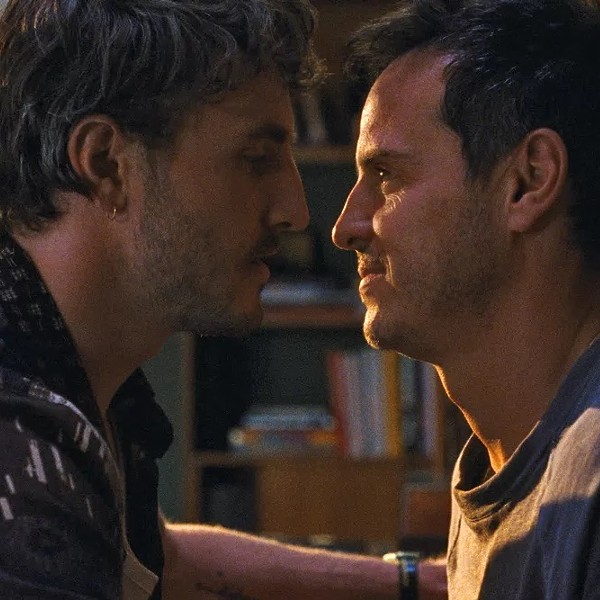The Woodstock Film Festival, an annual be-in of progressive filmmakers, musicians, and artists, will return to the Hudson Valley from October 1 through 5. For nearly its entire existence, the event has languished in the guttering twilight of the Bush administration, whose agenda remains antithetical in extremis to the ultra-liberal values that birthed WFF. The result has been a film festival whose impact and relevance have, ironically, grown as America (and, by extension, the world) has taken a battering.
Each year, WFF manages to skirt the growing pains that other independent festivals suffer and re-emerge as a no-frills gathering of the faithful. Celebrity-politicos and indie studio icons are lauded, counterculture phenomena are celebrated, and cult actors walk Tinker Street to polite acclaim. And, yes, that is indeed ‘60s folkie-sprite-mystic Donovan walking through the crowds this year, to support a new documentary about his multi-hued career.
Cofounders Meira Blaustein and Laurent Rejto continue to guard the ideals of the festival, culling a number of provocative and remarkable works from the 2,100 film entries this year. WFF award recipients this month include cinematographer and unreconstructed leftie Haskell Wexler (see interview), who will be given the WFF’s first lifetime achievement award. Producer-director Kevin Smith, whose penchant for comic books and poo jokes cannot mask a skewed brilliance, receives the annual Maverick Award. (His latest foray into humane outrageousness, Zack and Miri Make a Porno, closes this year’s festival.) Focus Features CEO James Schamus is honored with the Trailblazer Award. The cofounder of indie pioneer production company Good Machine, Schamus has always shown unerring and unwavering taste in championing artists like Todd Solondz, Todd Haynes, and his longtime collaborator, Ang Lee (The Ice Storm, Brokeback Mountain).
As the WFF has grown, so has the Bush juggernaut. The trade-off was that the reign of terror provided WFF filmmakers with ample material for films about injustices perpetrated upon the planet and its people: pre-emptive war, institutionalized racism, unemployment, ecological insanity. At the same time, the WFF could equally be relied upon for fun; the film program always allows its freak flag to fly. Documentaries and narratives revisit the back-to-the-garden counterculture that now seems poised, by necessity, to return.
A measure of fatalism bubbles up when you feel the world is collapsing about you, despite your efforts to wake the populace through the arts. And, more often than not since 2000, the WFF has seemed like an Irish wake: a raucous and mournful celebration of a world fast disappearing, despite our best efforts to save it. Perhaps the growing power of the Obama-Biden ticket will reverse the defensive, whistling-in-the graveyard mood among participants and artists that has palpably marked past festivals.
Wear your love beads and join the family.
For a full schedule of the Woodstock Film Festival, as well as the locations of all venues offering tickets, films, concerts, panels, and parties that will swallow the region for four days, visit www.woodstockfilmfestival.com.
CAPSULE REVIEWS OF FILMS SHOWING AT THE FESTIVAL
Of a roster of nearly 150 films this year—10 of them world premieres—the following were made available for preview. While they range, predictably, from the sophomoric to the sublime, there seems a surfeit of vital works in the festival this year. Not one of the 32 works screened can be dismissed out of hand. Even the few that were thematically earnest, visually cloying, or politically naive still commanded attention.
[* Denotes Chronogram film critic favorite.]
NARRATIVE FEATURES:
* 32 A (dir. Marian Quinn)—In an era when Judd Apatow has sewn up the American youth movie, for better of for worse, this tale of female adolescence in 1989 Ireland is refreshingly snark-free. Schoolgirl Maeve (Ailish McCarthy) has spirit to spare and a mouth she unleashes freely. But when a local boy in this seacoast town woos her, she yields to the first bittersweet taste of romantic love. Keenly observed and sweetly vulgar, this film offers numerous small joys and an unsentimental look back at the ‘80s. With Ulster County resident Aidan Quinn (brother of the director) and Jared Harris.
EDGE OF TOWN (dir. Christopher Ciancimino)—Promising debut by NYU film student Ciancimino, this short teases and then haunts with evocative cinematography and a fragmented storyline that explains why a local girl is found dead in the woods.
EXPLICIT ILLS (dir. Mark Webber)—The camera forever roves in this portrait of inner-city Philadelphians, some rich, some poor, all yearning for what they think they lack. Writer-director Webber fills his tale with elliptical characterizations of a genial drug dealer, a rich girl turned artist, a man hoping to open a health food store, and a small boy suffering from asthma. Every single frame resembles a painting, which may excuse the sketchy depictions. The vibe of this film can be summed up in one character exchange. She: “This is depressing.” He: “But it’s good for us as artists.” Starring Rosario Dawson and Paul Dano (There Will Be Blood) and executive-produced by Ulster County resident Jim Jarmusch.
















